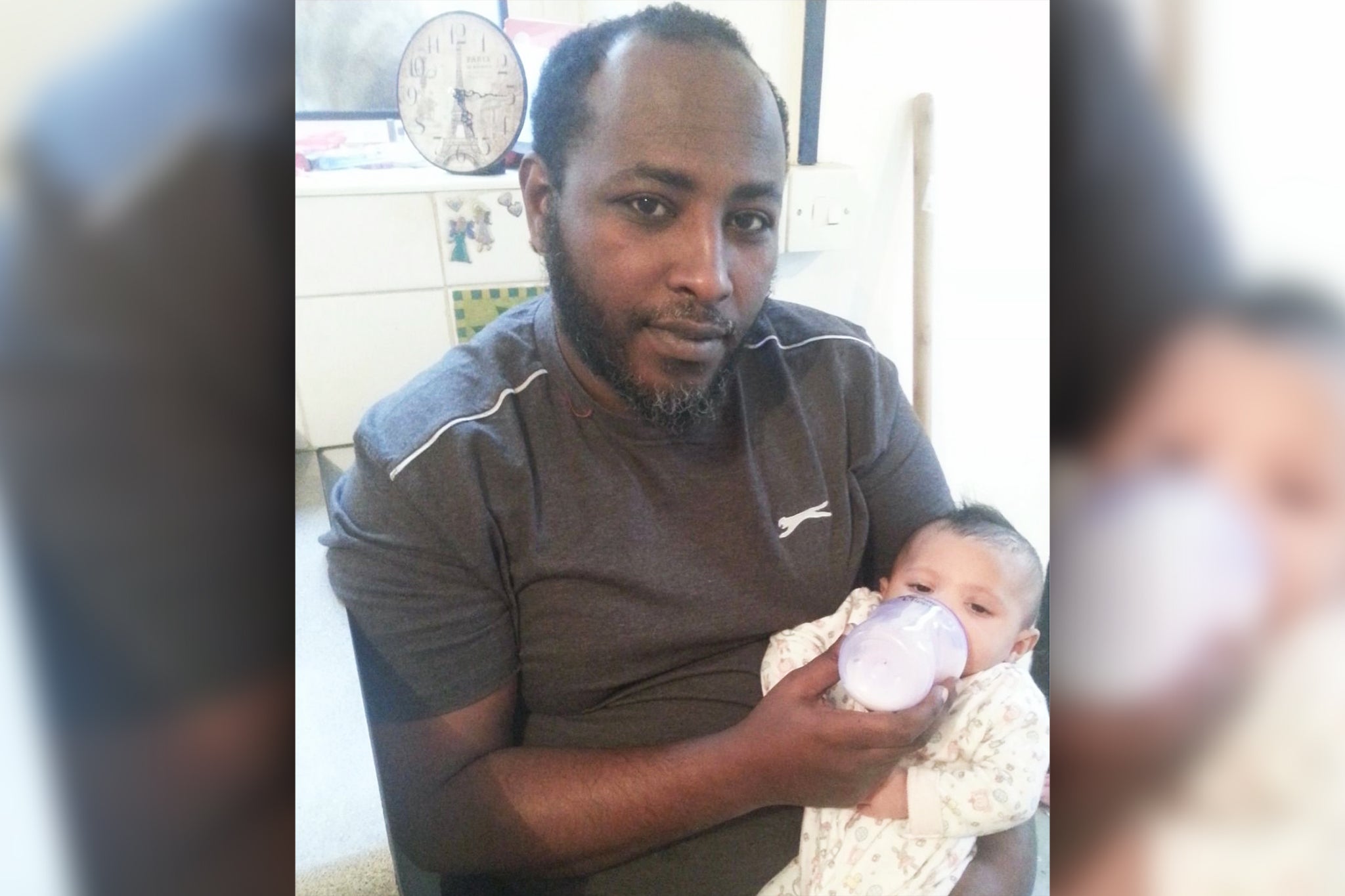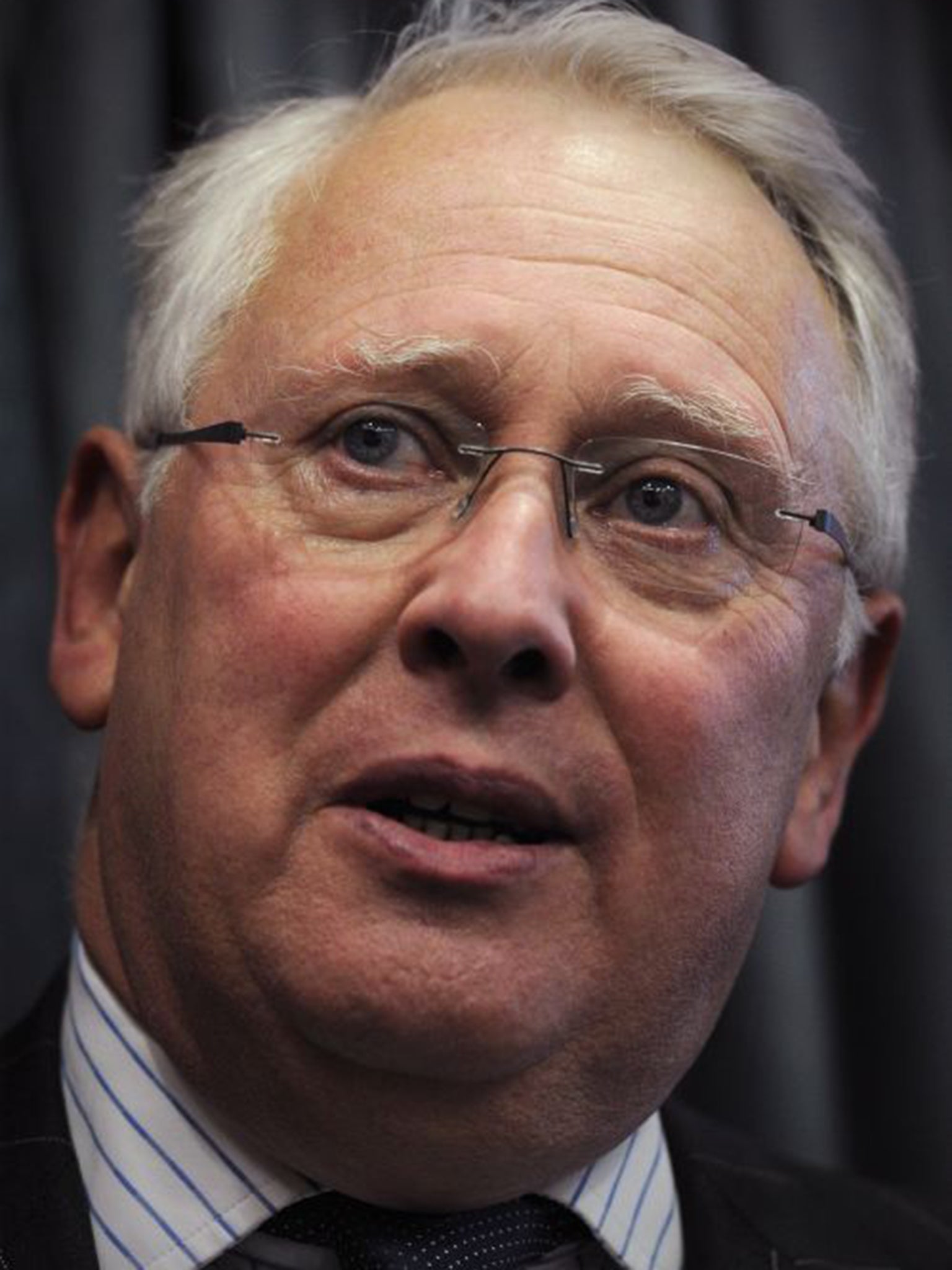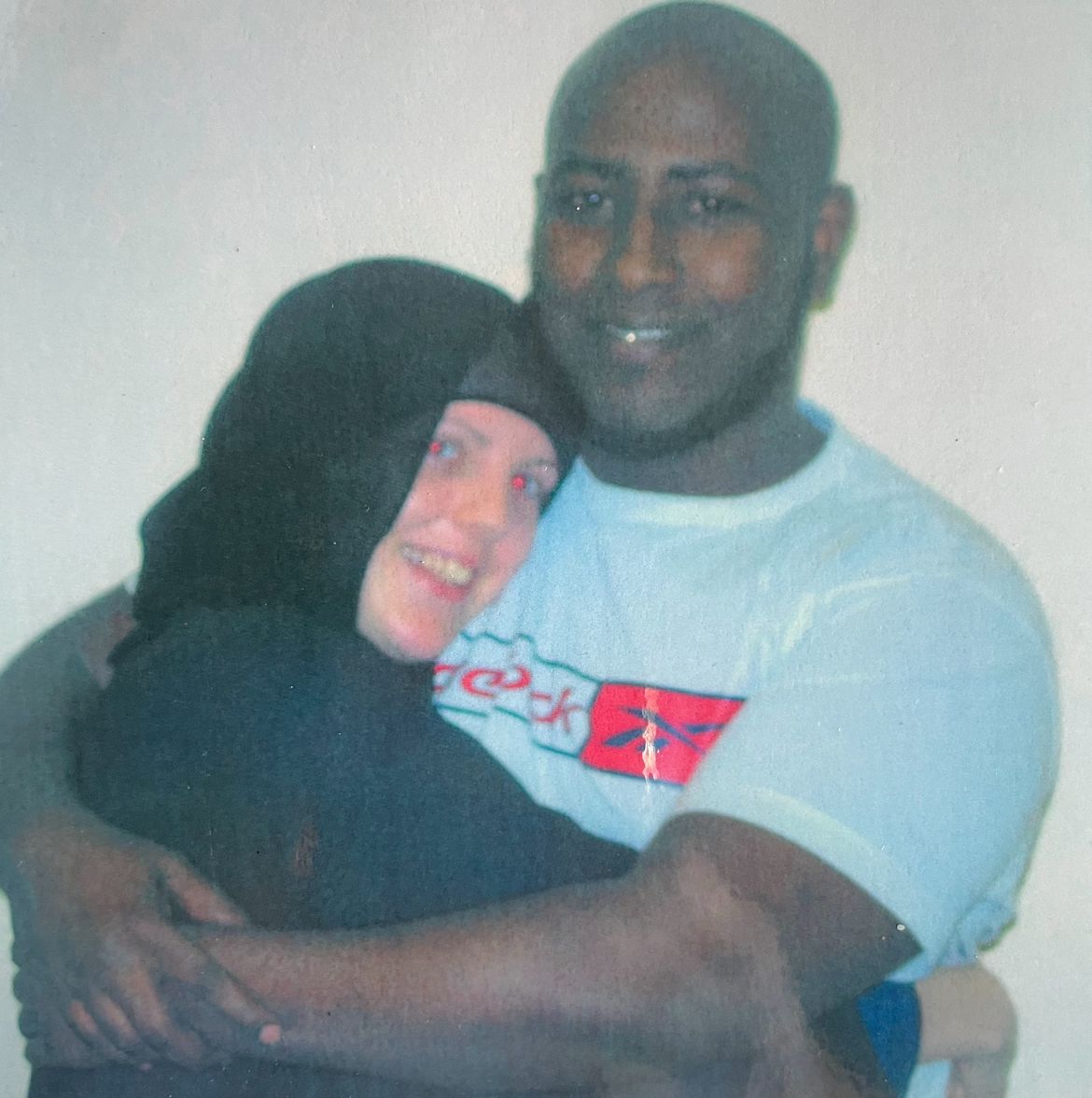Fears for father still in jail 19 years after laptop robbery under ‘scandalous’ IPP sentence
Exclusive: Government must have ‘courage to know when something is wrong’ and review IPP sentences, Bob Neill tells The Independent

A father trapped under an indefinite jail term for a laptop robbery almost 20 years ago still has no release date after he was recalled to prison for missing a hospital appointment.
Abdullahi Suleman’s devasted wife, Bernadette Emerson, has accused the prison system of “exploiting” his mental ill-health to keep him incarcerated under an abolished Imprisonment for Public Protection (IPP) jail term.
The 41-year-old, who has been diagnosed with bipolar and post-traumatic stress disorder, was sentenced to a minimum of three years and 276 days for robbery aged 22.
But he is still languishing in prison 19 years later – despite having committed no further crimes – having been hauled back to jail four times after attending mental health care was made part of his licence conditions.
In total, he has served nearly 15 years of the last 19 years in custody and is currently back in prison with little hope of being freed.
His case was branded “scandalous” by former chair of the justice committee Sir Bob Neill, who said it is a clear example of the “vicious circle” of the mental health deterioration endured by many IPP prisoners.
Sir Bob urged the new government to have the courage to follow the committee’s recommendation to resentence almost 3,000 prisoners still trapped under the sentence, warning: “It needs to happen now.”

Ms Emerson insisted her husband should receive “treatment rather than punishment” as she demanded immediate help for IPP prisoners.
The 39-year-old told The Independent: “It’s really wrong. They are breaching his human rights. They are exploiting his illness.”
The IPP jail terms – under which offenders were given a minimum tariff but no maximum – were scrapped in 2012 amid human rights concerns. But the abolition of the policy did not affect those already sentenced, leaving thousands trapped in jail for years beyond their original prison terms.
According to the latest figures published this week, some 2,734 people are still incarcerated under the abolished sentence – down just six per cent since last year. An estimated 700 have served at least 10 years longer than their minimum tariff.
Suleman, a trained bricklayer and plasterer who fled conflict in Somalia as a child for a better life in Britain, was handed an IPP in 2005 for a laptop robbery in a Cardiff park.
He served six years before he was first released, but was recalled two-and-a-half years later after he suffered a mental health relapse in the community.
Doctors gave him a treatment plan, which was then added to his strict licence conditions. So, when he missed a hospital appointment he was recalled to prison – despite not having committed any further crimes.
In the years that followed, he has been recalled three more times. On each occasion it was linked to “mental health non-compliance”, his wife said, adding that his detention has now become “arbitrary”.
Ms Emerson, from Cardiff, said each recall breaks up their family, leaving her to raise their three daughters aged nine, 10 and 19 as a single parent.
He was last hauled back to prison in 2017 and has served almost seven more years without release while his mental health continues to deteriorate.
“It’s really psychologically affected him,” Ms Emerson said. “He always describes just immense psychological torture. I feel it halted his life. It’s stopped him from moving on from the sentence and starting his life.
“It’s affected every aspect. It’s affected him being a father.
“I think it’s just painful for him that he’s lost so much of his adult years to the sentence.”
Ms Emerson’s anxiety about her husband’s situation was compounded recently when she lost contact with him for almost a month. She said she was told by a solicitor that he had been stabbed inside scandal-hit category B prison HMP Swaleside in Kent.
The Independent understands the Ministry of Justice cannot find evidence of an assault and a spokesperson said an error with Suleman’s telephone account has now been rectified – and apologised for the distress caused.
Ms Emerson said when she finally heard from her husband on Friday he sounded unwell and was speaking rapidly. “I am just glad to be back in touch with him,” she added.

Ms Emerson hit out at the introduction of an “IPP Action Plan” which she said has repeatedly interfered with Suleman’s mental healthcare in prison.
“I’m 39 now. It feels like my twenties and thirties have just been dominated by the impact and struggles of IPP,” she said, adding they are planning to explore appealing his sentence after another Welshman, Leighton Williams, had his IPP sentence quashed earlier this year.
“It feels suffocating when I think there is no end. When you have got a loved one in prison with a mental health illness it just makes your anxiety worse.”
Campaigner Shirley Debono, who co-founded IPP Committee in Action with Ms Emerson, backed calls for Suleman to be moved to a mental health facility where he can recover and she called for the newly elected Labour government to resentence all IPP prisoners.
She said she was “very disappointed” with a speech from new prisons minister James Timpson, who said IPP sentences would not be overhauled under a sentencing review to help ease prison overcrowding.
Sir Bob, who was chair of the justice committee before he stood down as an MP earlier this year, condemned Suleman’s case as “scandalous” as he blamed the state for the 41-year-old’s deteriorating mental health.
“That’s scandalous, and that’s been done to him by the state, and the state has an obligation to sort this out because it continues to harm people,” he told The Independent.
A 2022 justice committee report urged the previous government to resentence all IPP prisoners, but this was rejected. Plans to reduce the IPP licence period from 10 years to three were passed.
“What it demonstrates is something that our committee said about IPP prisoners,” he said. “The way that IPP sentences make prisoners’ mental health worse, so they’re trapped in a vicious circle, because their mental health deteriorates, then they’re concerned about releasing them – but that’s what the state does by putting them on IPP sentences. And that seems to have been what’s happened to the unfortunate man here.”
Sir Bob urged the new Labour government to implement reform, demanding: “It needs to happen now.”
He added: “There has been a lack of courage from both sides of the House on this. People are too fearful, but they’ve got to have the courage to know when something is wrong – at the beginning of a five-year term is the ideal time.”

Richard Garside, director of the Centre for Crime and Justice Studies, said prisoners face immense difficulty escaping the “dragnet” of recall to prison, which often includes being returned for minor infractions.
He added: “If he was given the usual determinate sentence, then he would’ve been long released, and if he didn’t get into any further trouble, he would’ve just have been able to get on with his life.”
A Ministry of Justice spokesperson said: “We have now rectified the error with Mr Suleman’s PIN telephone account and his family has now been contacted. We apologise for the upset this has caused.
“It is right that IPP sentences were abolished. The Lord Chancellor is committed to working with organisations and campaign groups to ensure the appropriate course of action is taken to support those still serving IPP sentences.”